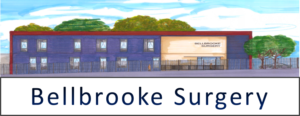Midwife
Suzanne Senior is our midwife.
She is available at the practice on weekdays. You can book an appointment with her via the reception desk.
The role of the midwife
A midwife is a qualified nurse who has undertaken further training to provide and promote normal midwifery.
They help you to prepare for motherhood and promote good health for yourself and your baby by advising on the effects of drinking, smoking and good diet whilst you are pregnant.
The midwife guides you through your pregnancy and endeavours to detect any problems and make relevant referrals if necessary.
First appointment with the midwife
If you are pregnant you do not need to see the Dr in order to have your first appointment with the midwife.
You can arrange a booking appointment via the reception desk. This first appointment should be at about 9 weeks of pregnancy.
Due date calculator
The Midwife will discuss your options for delivery, arrange appropriate referrals and provide you with dietary advice.
She will also take blood tests and will subsequently discuss the results with you. Whilst you are pregnant and until your baby is one year old you are entitled to free prescriptions and dental treatment. The Midwife will organise for an exemption certificate to be signed and sent off.
During The Pregnancy
Your maternity book lists when you will be seen by the Midwife, Doctor and hospital through your pregnancy. Should you have any concerns at any other time you can contact your midwife or, if she is not available, make an appointment to see a Doctor during normal surgery hours.
At some point during the course of your pregnancy, the Health Visitor will meet you to talk to you about her role in your care and about the childhood vaccination programme.
After Your Birth
After delivery, your Midwife will visit you at home to help you and your baby. Following the birth, she will visit you on your first day at home. When your baby is five days old she will carry out the Guthrie test (which is a special screening test that the Midwife will give you information about) and at ten days old she will discharge you and your baby from her care. Extra visits may be arranged according to need.
Your Health Visitor will visit you at home when your baby is between 10 and 14 days old and can advise on feeding, weaning and any family issues you may have.
About 6 weeks after your birth you should make an appointment to see your doctor to discuss contraception and any concerns you have about your own health.
Breastfeeding
It takes time for you and your baby to learn how to breastfeed.
The NHS Choices page on breast feeding might be useful.
Your midwife can also offer support and advice.
There are also a number of national services offering local support groups, which can be accessed via their websites:






